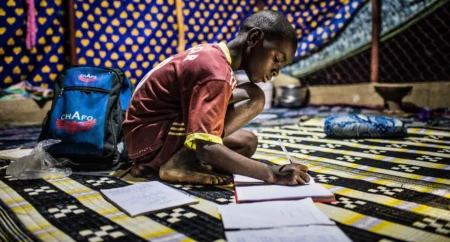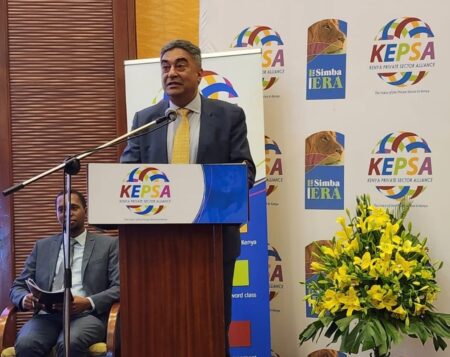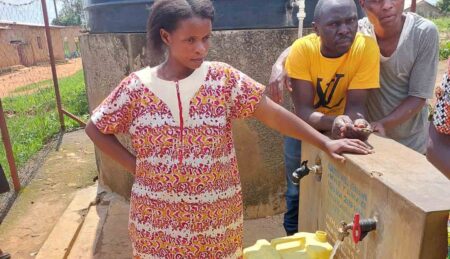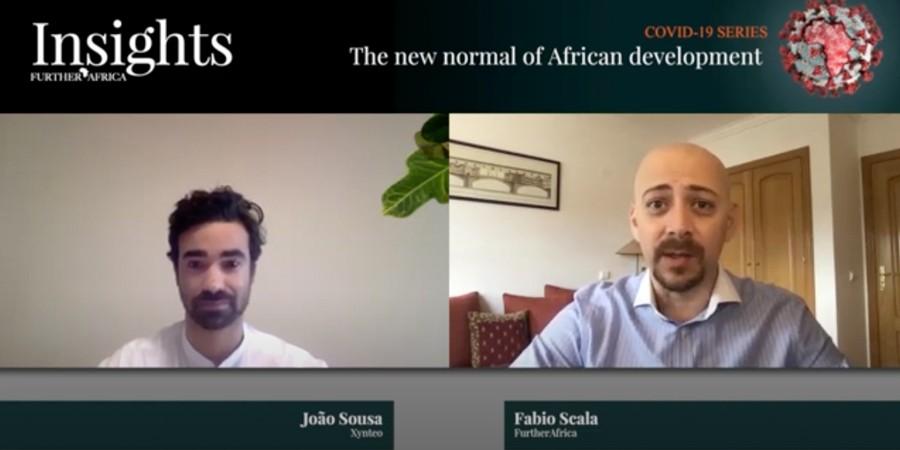- Wärtsilä Energy offers tips on how Africa can navigate energy transition and grid reliability
- Powering Africa: Africa’s Path to Universal Electricity Access
- Global investment trends at AIM Congress 2024: a spotlight on the keynote speakers
- South Africa’s deepening investment ties in South Sudan oil industry
- Agribusiness could drive Africa’s economic prosperity
- Dawood Al Shezawi: Why AIM Congress 2024 is the epicenter of global economic and cultural dialogues
- d.light’s 600,000 cookstoves project verified as top source of quality carbon credits
- Artificial intelligence (AI) could create a turning point for financial inclusion in Africa
Browsing: Private Sector
- Energy experts warn that the shortages that plague Africa’s electricity access in 2024 will have a significant drain on the continent’s economic growth.
- World Bank will connect 300 million Africans to electricity with a $35 billion plan.
- Africa is poised to adapt to transformative advancements that will reshape the landscape of energy access, storage, and connectivity across the continent.
Africa remains the most energy-deficient continent, with approximately 75 per cent of its population lacking access to electricity. As of 2021, 43 per cent of Africans, roughly 600 million people, were without electricity access, with 590 million in sub-Saharan Africa. Consequently, nearly half of the continent’s population is unable to use basic electrical appliances.
Despite improvements in electricity access in sub-Saharan Africa, where 49.4 per cent of the population had access in 2022, up from 33 per cent in 2010, electricity consumption has not seen a corresponding increase. The persistent lack …
- Non-performing loans in Kenya surged to a 16-year high of 15 per cent in August 2023.
- The Kenya Bankers Association had called for further monetary policy tightening by the CBK, terming it a cure to elevated non-performing loans.
- According to the CBK data, forex pressure cut lending to the private sector to 8.3 per cent during the review period.
The banking sector regulator has said that Kenya’s private sector players resorted to alternative funding sources to avoid the high lending rates, leading to a drop in non-performing loans during the holiday season.
The continued surge in bank interest rates has hit individuals and businesses hard on the back of the Central Bank of Kenya’s (CBK) elevated benchmark interest rate. This has happened thrice since Governor Kamau Thugge took office, citing the need to support the country’s struggling shilling.
On Tuesday this week, the Central Bank of Kenya increased the benchmark …
- Newly appointed directors on the board of KEPSA take charge and embrace new strategies.
- Change of leadership also seen at KEPSA’s Governing Council where new sector chiefs will steer industry boards.
- KEPSA, which is celebrating its 20th anniversary later this year, has made a significant contribution to Kenya’s economic growth.
Jaswinder Bedi of Bedi Investment is now the Chairperson of the Board of Directors of the Kenya Private Sector Alliance (KEPSA), ushering in a new era at the head of guiding the role of private investments in the nation’s economy.
American Chamber of Commerce
On the occasion of the organization’s 19th Annual General Meeting, Brenda Mbathi of the American Chamber of Commerce, Kenya, was also elected as Vice-Chairperson. Bedi, who has served as the Vice-Chairperson of the Board since 2021 will be succeeding Flora Mutahi after her two-year tenure at the helm of KEPSA Board.
The KEPSA Board also received …
- The Kigali Bulk Water Supply Project will be AfDB’s first private sector operation in landlocked Rwanda.
- The initiative covers the installation of a new water treatment plant, the building new wells and rehabilitating existing ones.
- It is also providing pipelines, storage reservoirs, pumping stations and water points in various parts of Kigali city.
The African Development Bank (AfDB)-backed water distribution project in Kigali, Rwanda, will benefit about 500,000 people. Rwanda, along with various development partners and agencies, has prioritised investments in water infrastructure and implemented reforms to enhance access to safe and reliable water sources.
Currently, water supply in Kigali is managed by the Water and Sanitation Corporation (WASAC). The entity is a public utility responsible for water production, treatment, and distribution. WASAC has been working to expand and upgrade the water supply infrastructure to meet the growing demand in the city.
Kigali yet to offer universal water
…AfCFTA’s successful implementation can boost trade and promote Africa’s economic recovery and growth. The AfCFTA is the world’s most extensive free trade area in terms of size and number of nations, with a combined GDP of around $3.4 trillion.
Increased integration would improve incomes, generate employment, stimulate investment, and make establishing regional supply chains easier. In comparison to Africa’s external trade, intra-African trade remains tiny. In 2020, just 18 per cent of exports went to other African nations.…
Yet for SME and corporate lending, credit decisions remain an extended process as information is gathered manually and appraised over, sometimes, weeks, to establish the creditworthiness of the borrower.
The need to abandon such cumbersome processes has recently seen leading banks adopt technology, such as our CreditQuest, to automate credit origination, and manage credit workflow, appraisals, documents, customer ratings and credit decisions.
This kind of technology draws all current and historical credit data onto a unified platform, giving the bank’s analysts a true single customer view of credits and collaterals.…
Uganda’s private sector continues to recover from the impact of the Covid-19 pandemic as business conditions improved in August after a near standstill of activities during the lockdown put in place between March and the end of May.

This is according to the latest Stanbic Purchase Managers Index (PMI) report which shows that Uganda posted a 54.6 increase from 50.3 in July, which is the highest since February.
According to the report, the reading is above the positive threshold of 50.0 and substantially higher than the 46.5 reported for June.
The PMI is a composite index, calculated as a weighted average of five individual sub-components: New Orders (30 per cent), Output (25 per cent), Employment (20 per cent), Suppliers’ Delivery Times (15 per cent and Stocks of Purchases (10 per cent).
According to Stanbic Bank Uganda head of global markets, Kenneth Kitungulu, the steady improvement is due to the fewer …
 FurtherAfrica Insights – COVID19 series with João Sousa from Xynteo.
FurtherAfrica Insights – COVID19 series with João Sousa from Xynteo.
A conversation about the role of different stakeholders in the development process and the opportunities to reshape inclusion particularly from the private sector in a post COVID19 world.…
The Belt and Road Initiative is a China-led strategy to strengthen global trade links across the world, in particular between Asia, Africa and Europe…













